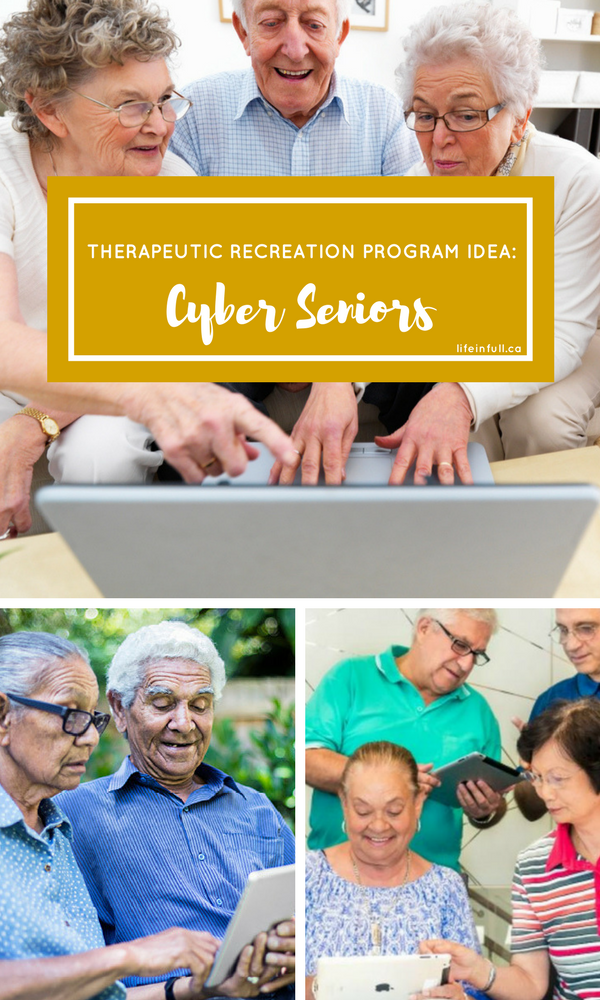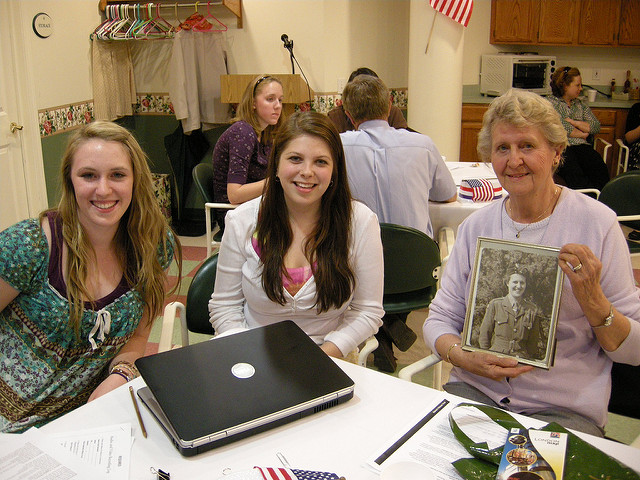
There’s no doubt that technology has become a staple component in many aspects of our lives: communication, navigation, shopping, research, finance management, and more. However, many older adults understandably find technology a bit daunting or have simply never learned to use the tools that so many of us take for granted.
This is why intergenerational programs, like Cyber Seniors, can be such an effective and enjoyable Recreation Therapy intervention.
Cyber Seniors is a program that was launched in 2009 by Macaulee and Kascha Cassaday, sisters in high school (yes, high school!) at the time. They witnessed firsthand how learning to use the Internet transformed their grandparents’ lives. After learning some basic skills, they were in touch more frequently through online communication, and the Internet became instrumental in keeping their family connected. Inspired, they started the Cyber Seniors program to help other older adults get online.

The goal of the program is to “inspire older adults to tackle the digital divide and encourage tech savvy youth to make a difference in their community,” resulting in intergenerational collaboration. The beauty of this as a Recreation Therapy intervention is that, as an intergenerational one, it can be used effectively for younger and older adults alike.
Check out my program guide below for introducing your own Cyber Seniors intergenerational program!
*Note: this guide is from the perspective of a RT working with an older population and enlisting the support of local youth. It can certainly be reversed as a program for adolescent clientele reaching out to long-term care facilities and retirement homes, though the goal areas would of course be different!
Programming Considerations
- See the program guide from www.cyber-seniors.ca
- A one-on-one setting (of youth mentor to older adult mentee) seems ideal for optimal support, and a group of 4 older adults to one mentor at a time would likely be the highest to go
- Program length will depend on the learning style of the mentee and the teaching style of the mentor. The goal is to get the older adult comfortable with using computers and the Internet on their own, so a longer program time would be ideal!
- A task analysis approach of breaking smaller teachables down over a number of weeks seems optimal (i.e. using a mouse/keyboard, creating a social media account, using a webcam, uploading a video to YouTube, etc.)
- Remember to take breaks, as such a cognitive and vision intense activity may be draining
Goal Areas
- Grasp of technology
- Independence with using a computer and/or Internet platforms
- Confidence, self-efficacy, and self-sufficiency (i.e. online banking)
- Fine motor skills
- Attention, memory, problem-solving
- Enhancing online communication with family/friends
Tools
- A computer, laptop or tablet (well-suited to client’s abilities)
- Internet connection
- Adaptive aids, if needed
- Patience!
Clients
- It would likely be more difficult for individuals with severe upper body mobility limitations or very advanced cognitive impairments to learn to use the Internet – but not impossible!
Adaptations
- Older adults can use video instead of written comments on platforms such as Facebook
- They can use voice commands instead of typing if technology permits
- Low-tech adaptive methods (tennis balls, putty) can be used to help them acclimate to using a keyboard, mouse etc.
Cyber Seniors also evolved into a documentary – see the trailer below!
References:
http://cyber-seniors.ca/get-involved/start-a-cyber-seniors-program
